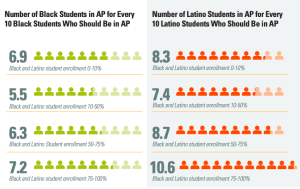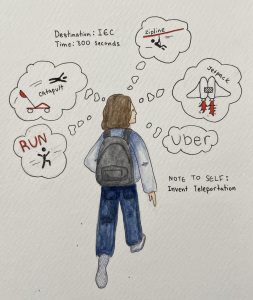Masters alumna Hannah Miller (Class of 2010) discusses Trump’s disputes over the 2020 Presidential Election process
Photo courtesy of Hannah Miller
Hannah Miller (Masters class of 2010) is an associate in Election Law and Government Ethics Practice at Wiley Rein LLP, where she focuses on campaign finance, ethics, and lobbying laws (per her LinkedIn).
November 6, 2020
As vote counting continues and the president sees his early lead slipping away in some states, lawsuits have been filed by the Trump Campaign contesting many aspects of the election. Masters alum and election attorney Hannah Miller ‘10, says that unless the cases have real merit, the president has little chance at success in these suits.
Almost immediately after former Vice President Joe Biden flipped the state of Wisconsin on November 4, President Donald Trump’s campaign announced that they were going to request a recount. Since then, President Trump has filed several election lawsuits in Pennsylvania, Michigan, Nevada and Georgia in an attempt to stop states from counting votes that he believes were cast after the polls had already closed. In his most recent press conference, which took place on Thursday evening, he said, “They’re trying to steal an election. They’re trying to rig an election, and we can’t let that happen.”
Despite these claims, Trump’s team has presented little evidence to support his arguments. There has been a sudden surge in votes for Joe Biden because many states are counting absentee and mail-ballots after election-day votes, and Trump specifically urged his voters not to vote by mail. There is no evidence of large-scale voter fraud taking place as Trump suggests, and investigations into previous claims have shown that large-scale voter fraud is a myth. While these comments made by President Trump convey a false ideology to his followers, they do not merit much value in a court of law.
Miller said, “There is not a vast amount of harm from bringing lawsuits like this because we are seeing that our judicial system is able to address them in a timely way. If the practices that are laid out in state law are occurring as they ought to be occurring, then a judicial decision recognizing that only bolsters the efficacy of our electoral process.”
In Miller’s eyes, one of the only substantial arguments that Trump can make is that the states that extended their mail-in ballot deadline cost him the election. Pennsylvania, for example, announced that if there was no evidence that a ballot was postmarked after election day, then they would assume it was postmarked on time. Regardless of who wins Pennsylvania, there is no doubt that the victor will only have won by a very small margin, and there is a case to be made that this policy will have played an integral role in any outcome.
Although Trump has had little success in his legal battles at the district and appellate court levels thus far, he has vowed to go before the Supreme Court to present his case. According to Miller, given the lack of evidence the Trump campaign has presented at this point in time, it is unlikely the Supreme Court will hear his case.
She said, “If there is no merit to the claims that are being filed at the state level it is not going to make it to the Supreme Court. I have faith in our judicial process, and the judicial process is structured in a way that frivolous suits or suits that do not have sufficient evidence to substantiate claims cannot survive… Any litigant can file anything they want. That does not mean it is going to move much further.”
Even though it has been twenty years since there was an election that was this hotly contested, recounts and electoral disputes are somewhat frequent in American politics. Oftentimes these recounts do not end up making the headlines because they have little to no effect on the original outcome of an election.
Miller stated, “This isn’t unique to Donald Trump. There are plenty of candidates that find themselves in a situation where they feel they want to ask for a recount, and that is not necessarily a bad thing, especially when we are talking about razor-thin margins”.
Although it was declared unconstitutional for a recount to take place in only certain counties (Bush V. Gore), Trump would be doing nothing illegal by requesting recounts in only certain states and not others.
As Miller spelled it out, “Each state is responsible for administering their own elections, so as long as they administer them in a uniform way throughout their own state, the argument could not be made that if there is a reason to request a recount in one state that you would have to request them in all states.”
Even if Joe Biden reaches the magic number of 270 electoral votes in the next couple of days (as he is projected to), it has become evident that his status as president-elect of the United States is going to remain in question for some time. While it is unclear exactly what kind of case President Donald Trump is going to put forth, there is no doubt that his aim is to conduct a recount under a different set of rules with the hopes that certain swing states could change hands.
The views expressed in this piece do not reflect those of and should not be attributed to Hannah Miller’s employer or its clients.


















